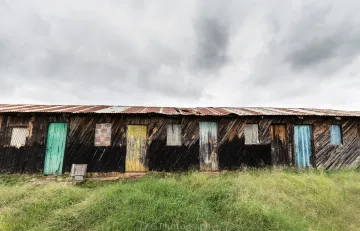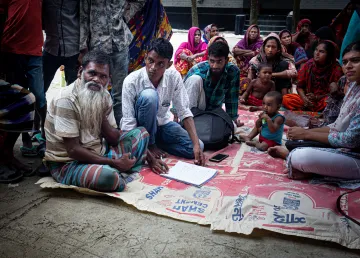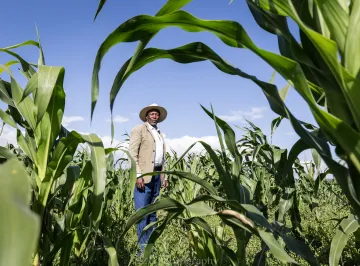Humanitarian Crisis and Assistance
Humanitarian Assistance Technical Support (HATS) Funded Modification
The $2m funded modification to the Humanitarian Assistance Technical Support (HATS) project builds upon the projects current objectives to support the disaster management mission of USAID’s Bureau for Humanitarian Assistance (BHA) and to expand the institutional capacity of the University of Arizona (UAz) in addressing global humanitarian crises. The expanded funding seeks to raise the institutional capacities of African universities by providing African researchers with funded opportunities to conduct climate change adaptation research in Africa. HATS is collaborating with Stellenbosch University and the Partners for Enhancing Resilience of People Exposed to Risks (Periperi U), a network that consists of 12 higher education institutions across Africa, on this initiative. In doing so, the collaborative project will help USAID deliver on its commitment to locally led development. Additionally, it will help address the current lack of funding for climate adaptation research in Africa despite the continent being both least responsible for and most impacted by the accelerating impacts of climate change.
For further information, visit the HATS website.
Location
Donor
Related Research

Enhancing Evidence for Humanitarian Action
The Enhancing Evidence for Humanitarian Action activity aims to provide USAID’s BHA, its partners, and the broader humanitarian community with indicators and methods for measuring the impact of investments in early warning, Disaster Risk Reduction, and climate adaptation programming. The project draws on UA’s strength in interdisciplinary science to research indicators and methods for measuring behavior and landscape change through recurrent monitoring, remote sensing and earth observation, and qualitative inquiry.
The Principal Investigator is Zack Guido, the Director of the Arizona Institute for Resilient Environments and Societies (AIRES), International Programs and Assistant Research Professor, School of Natural Resources and Environment. Team members include Alex Braithwaite from the School of Government and Public Policy; Jeff Michler and Anna Josephson from the Department of Agricultural and Resource Economics; Beth Tellman from the School of Geography, Development, and Environment; Corrie Hannah from AIRES; and Tim Finan from the School of Anthropology. The project team includes the Tucson-based consulting firm Technical Assistance for NGOs (TANGO).
Location
Donor
Related People
Related Research

Famine Early Warning System Network
USAID has awarded an IDIQ contract to Tetra Tech ARD (ARD, Inc.); DAI Global, LLC; Abt Associates, Inc.; and Chemonics International, Inc., to provide services for the Famine Early Warning Systems Network (FEWS NET) 7. The goal of FEWS NET 7 is to sustainably prevent food insecurity and famine. FEWS NET 7 is structured around four main pillars of activities: Emergency Food Insecurity Analysis, Management of a FEWS NET Learning and Data Hub (restricted to Small Business set-aside), Analysis of the Dynamics of Food, Nutrition and Livelihood Security, and Technology and Innovation. The University of Arizona is a resource partner for DAI and is able to compete for task orders issued under this IDIQ with DAI.
Location
Donor
Related Research

Zack Guido


